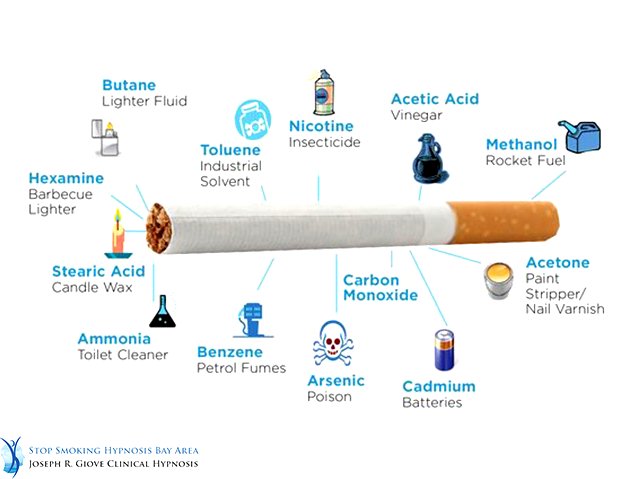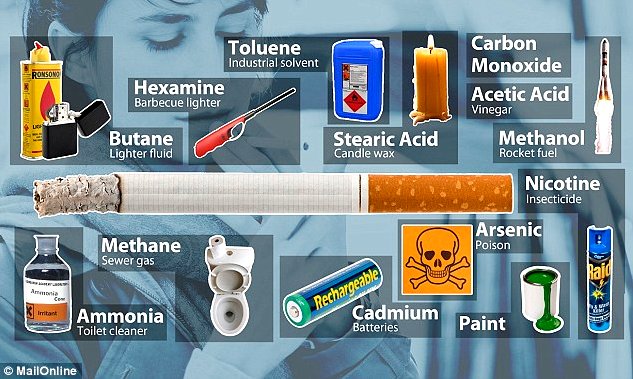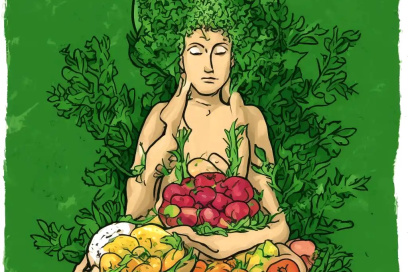Have you ever asked yourself the perplexing question "Are cigarettes vegan?" If you are vegan, this might have crossed your mind, or it might not even have come up yet - but either way it deserves an answer, and so we are here to explore this perplexing topic further. While cigarettes seem made of plant materials and do seem devoid of animal products at first glance, that does not classify them as completely vegan; therefore this topic merits closer examination in this engaging blog post.
In this article, we'll take an in-depth look at cigarettes and examine if their contents align with veganism's strict principles. We will examine the ingredients included in their composition, as well as any lasting consequences on both environmental and animal welfare. Furthermore, we will open up the conversation to address the challenge of finding eco-friendly alternatives that meet veganism's high standards. No matter your views on veganism and sustainability, rest assured that this blog post will give you all of the insight and information needed to make an impactful difference in our planet. Let's embark upon this illuminating voyage together as we investigate the thorny intersection of cigarettes and veganism!
I. The Ingredients in Cigarettes
As part of our attempt to answer whether cigarettes are vegan, we must first investigate their ingredients. The primary component is tobacco leaves sourced primarily from Brazil, US and China before being dried processed and eventually rolled within cigarette paper - however this only accounts for part of what makes up cigarettes as an intricate web.
Chemical Additives, Paper, and Filters
Their main function is to add flavor to cigarettes; however, their destructive impacts include sugars, flavorings, humectants, as well as potential health implications that have serious ramifications for human health and the environment.
Are cigarettes vegan? -Concerned smoker
by u/hydroboywife in vegan
"While cigarettes do not contain animal products, it is worthwhile to take into account all of their components and their potential impact on animal welfare and the environment."
Cigarette paper, composed of wood pulp and flax fibers, serves to provide a structural framework for tobacco to allow for an enjoyable smoking experience while also being good for the planet. However, production impacts suggest its inclusion isn't without downsides or side effects on our planet.
Filters composed of cellulose acetate or cotton have evolved over time and become an integral component of cigarettes. Intended to minimize harmful chemicals ingested while smoking, these filters have come under scrutiny due to their non-biodegradability and potential environmental ramifications.
Are Cigarettes Vegan?
While cigarettes do not contain animal products, it is worthwhile to take into account all of their components and their potential impact on animal welfare and the environment. Producing additives and flavorings requires lengthy chemical processes which release harmful byproducts into the environment and harm both humans and animals alike, rendering cigarettes non-vegan. Likewise, smoking has several environmental impacts which require taking an holistic approach when considering if cigarettes qualify as vegan or not.
II. The Ingredients in Cigarettes
Poses a difficult question- are cigarettes considered vegan? Although at first glance it seems simple enough, further exploration reveals how complex this matter truly is.
- Cigarettes do not contain animal-derived ingredients
- However, their production carries significant environmental and ethical ramifications that violate vegan principles
Environmental Impact
Tobacco cultivation necessitates vast areas of land as well as large quantities of water resources - leading to deforestation and land degradation that threaten both animals and the planet alike.
Furthermore, the tobacco industry is responsible for devastating consequences on animal welfare. Millions of animals die or suffer due to habitat loss and deforestation caused by tobacco planting and processing processes; further compounding this problem are pesticides and herbicides used on tobacco crops that have devastating impacts on both living creatures and humans alike.
Exploitation of Vulnerable Members
The production and consumption of cigarettes exploit the most vulnerable members of society, perpetuating child labor practices and exposing them to toxic substances. Farmers working in tobacco farms - often in developing nations - tend to earn low wages while suffering health effects caused by exposure to hazardous chemicals.
Cigarette Alternatives
Tobacco harm reduction offers another solution for quitting smoking outright: electronic cigarettes (e-cigs). E-cigarettes have become an increasingly popular alternative to traditional cigarettes in terms of both production and chemical content; their production only emits vapor with far fewer hazardous compounds and chemicals compared with regular tobacco cigarettes. Herbal cigarettes, nicotine gum patches, or patches also present viable options that do not utilize traditional tobacco and are therefore more sustainable options that support environmental sustainability and animal wellbeing.
Conclusion
Ultimately, it is crucial to recognize that the question of whether cigarettes are vegan is more complex than one might initially suspect. The adverse impacts associated with tobacco production and consumption cannot be ignored and have far-reaching ramifications for both animals and our planet itself. As a society we must adopt sustainable solutions with less harmful consequences in order to adhere to vegan principles in all actions we undertake.
Learn about cigarette ingredients at cancer.org.
III. Are Cigarettes Vegan?
Sustainable Alternatives for Tobacco-Based Products
After acknowledging the harmful environmental and ethical impacts associated with smoking for vegans, it's imperative to explore sustainable solutions which can mitigate them. This chapter presents several options which offer hope to smokers while adhering to vegan principles.
E-cigarettes and Vaping
Vaping involves heating a liquid mixture of nicotine until it turns into vapor that can then be inhaled. However, not all brands meet vegan standards as some brands contain flavorings harmful to human health.
Herbal Cigarettes
Herbal cigarettes offer another smoking alternative. Their unique combination of assorted herbs and flowers creates a distinctive taste and aroma, but their lack of biodegradability often prompts critical reviews.
Nicotine Patches and Gums
Nicotine patches and gums have quickly gained popularity as a vegan alternative to smoking. Containing pure nicotine without any harmful additives or chemicals added for flavoring purposes, these products provide safe yet effective smoking cessation solutions.
Plant-Based Smoking Cessation
Plant-based smoking cessation, an approach aligning with vegan principles, offers various smoking alternatives without animal products. Plant-based herbal cigarettes, nicotine gums and patches, and natural remedies all offer effective ways to kick the habit while remaining true to one's vegan values.
No matter which option smokers select, what's important is adopting these alternatives as healthier, sustainable and proactive ways of mitigating the harmful social, environmental and ethical risks associated with traditional cigarette smoking. By adhering to such alternatives, smokers take a further step toward creating a better, safer world free from the harmful effects associated with tobacco smoking.
Learn more about if cigarettes are vegan on ash.wales.
IV. Sustainable Alternatives to Cigarettes
The complex relationship between smoking and animal welfare
requires examination, with perplexing and multifaceted consequences that require further elucidation. Though not directly involving consumption by animals, smoking still manages to encumber animal welfare indirectly through its harmful production and consumption effects on animals as well as their environments in ways that affect animals in various ways and dimensions.
Tobacco farming's extensive land requirements
inevitably leads to deforestation and habitat loss, impacting many creatures including birds, small mammals and insects - including birds, small mammals and insects - living therein.
Production and consumption of cigarettes
has devastating environmental consequences; creating air and water pollution which poses severe danger to animals both big and small; while hazardous substances like pesticides, insecticides and toxic byproducts from production put animals into grave straits both big and small alike.
Producing cigarettes can be hazardous
to human workers who must endure working in an environment which threatens their wellbeing, health and safety - leading them to accumulate industrial chemicals that reduce their ability to provide for themselves and their families. Furthermore, their disposal poses threats of grave harm for marine life, ecosystems and wild animals as their non-biodegradable synthetic filters contain toxic constituents which pose threats that pose grave threat.
For us to create a sustainable and healthy environment, animal welfare, and conservation practices, it is vital that we take active steps toward tobacco harm reduction by cutting down smoking and supporting alternatives that adhere to veganism principles. Protecting our environment demands we reduce its negative impacts on animal welfare and conservation; thus smoking awareness should work hand-in-hand with supporting animal welfare, in order to create transformative change which aligns with sustainability tenets.
Closing Thoughts
Classifying cigarettes as vegan can be complex. While cigarettes lack animal products and other non-vegan elements, their production and consumption presents serious environmental and ethical implications that go against vegan principles - this includes animal welfare considerations such as deforestation, habitat loss, water and air pollution as well as farmer exploitation - making their classification uncertain at best.
Still, there is hope. Alternatives to traditional cigarettes that align with veganism's fundamental values exist and can help alleviate confusion surrounding this perplexity. Such options include E-cigarettes, nicotine gums, patches and herbal cigarettes - each featuring different sentence lengths and patterns for easy identification. These alternatives reduce animal suffering while making more sustainable decisions; each offering its own contribution to society.
As conscientious vegans, it is imperative that we carefully consider and assess how our choices may impact the environment, animals, and people alike. Though quitting smoking remains the ideal way to reduce tobacco harm reduction, smokers may also look into other sustainable options to protect the planet and lessen animal suffering.
Thus, smoking is a complex issue which transcends simple right or wrong questions; often forcing one to think in complex and profound ways about this topic.




